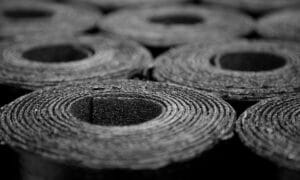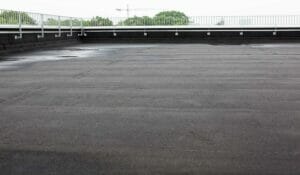Choosing the right roofing system for your commercial property is a crucial decision that can impact your building’s longevity, energy efficiency, and overall performance. With a variety of roofing materials available, each with its own set of advantages and disadvantages, it’s important to make an informed choice. Denver Roof Coatings, a local roofing contractor specializes in the following roof coatings: urethanes, polyurethanes, acrylic, silicone, asphalt, rubberized aluminum, polyureas, and granules. They each have their own special characteristics to help determine which one is the best fit for your commercial property.

Urethane Roofing
Urethane roofing systems are known for their durability and resistance to UV rays, making them a popular choice for commercial buildings. They offer excellent waterproofing properties and are easy to apply, making them suitable for various roof designs. Urethane roofs are low-maintenance and can withstand harsh weather conditions. However, they may require occasional recoating to maintain their performance.
Polyurethane Roofing
Polyurethane roofing systems are similar to urethanes but offer enhanced insulation properties. These roofs can help regulate indoor temperatures, leading to energy savings over time. Polyurethane roofs are also resistant to moisture and chemicals, making them suitable for industrial and chemical processing facilities. They require proper installation to ensure the insulation properties are optimized.
Acrylic Roofing
Acrylic roofing systems are cost-effective and known for their ease of application. They provide good UV resistance and reflect sunlight, which can help reduce cooling costs during hot summers. Acrylic roofs are also highly flexible, making them ideal for buildings in regions prone to temperature fluctuations. However, they may not be as durable as some other options and may require regular maintenance.
Silicone Roofing
Silicone roofing systems offer excellent resistance to UV rays and weathering, making them a durable choice for commercial properties. They are highly waterproof and flexible, allowing for expansion and contraction with temperature changes. Silicone roofs require minimal maintenance and have a long lifespan. However, they can be more expensive upfront compared to other options.
Asphalt Roofing
Asphalt roofing systems, commonly known as built-up roofing (BUR), have been a staple in the roofing industry for decades. They consist of layers of asphalt-saturated felt and bitumen. BUR roofs are known for their durability and cost-effectiveness. They can withstand foot traffic and are suitable for heavy-duty applications. However, they may not be as energy-efficient as some other options and can require more maintenance over time.

Rubberized Aluminum Roofing
Rubberized aluminum roofing systems combine the durability of rubber with the reflective properties of aluminum. These roofs are highly resistant to UV rays and can reflect sunlight, helping to keep the building cool. They are often used in flat or low-slope roofs and require minimal maintenance. However, they may not be as aesthetically pleasing as some other roofing options.
Polyurea Roofing
Polyurea roofing systems are known for their rapid curing and high tensile strength. They are extremely durable and can withstand extreme temperature fluctuations. Polyurea roofs are resistant to chemicals, making them suitable for industrial applications. However, they can be more expensive than other roofing materials and may require professional installation.
Granule-Coated Roofing
Granule-coated roofing systems, often seen in asphalt shingles, provide an additional layer of protection. These granules enhance the roof’s resistance to UV rays and add aesthetic appeal. While granule-coated roofs are common in residential roofing, they can also be used in commercial applications, particularly in areas with heavy rainfall. Regular inspections and maintenance are essential to ensure the granules remain intact and functional.
Choosing the right roofing system for your commercial property is a decision that should not be taken lightly. Each roofing material has its own set of advantages and disadvantages, so it’s important to consider factors such as climate, budget, and long-term maintenance. It is wise to remember that proper installation and maintenance are key to ensuring the longevity and performance of your commercial roof. Consult with Denver Roof Coatings to assess your specific needs and make an informed choice that will protect your investment.

